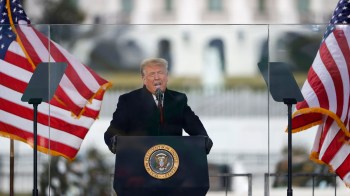FDA gets stricter on conflicts of interest
TEXT OF STORY
Stacey Vanek-Smith: Yesterday, the Food and Drug Administration finalized stricter rules for doctors who advise the agency and have financial ties to pharmaceutical companies. The FDA wants to prevent conflicts of interest. Now Congress wants to make similar changes at the National Institutes of Health. Marketplace’s Nancy Marshall Genzer explains.
Nancy Marshall Genzer: Say you’re a well-known university researcher. You get a grant from the National Institutes of Health to conduct a drug-safety trial. You’re also you’re getting consulting fees from the company that makes the drug.
Under current law, all you have to do is tell your university if the company pays you more than $10,000 a year. There’s no checking. It’s an honor system.
Iowa Republican Senator Charles Grassley:
Senator Charles Grassley: There’s a buddy-buddy relationship in the research community that has gone to the point of where there can be conflicts of interest that are really detrimental.
So Grassley introduced the Physician Payments Sunshine Act. It would require drug makers to report to the government any payments to doctors over $500 a year. And just yesterday, the Food and Drug Administration announced new conflict of interest regulations that are even tougher than Congress requires.
Doctors getting more than $50,000 a year from drug companies are prohibited from serving on advisory committees, with rare exceptions. Those taking home less than that can get a waiver.
Randall Lutter is the FDA’s deputy commissioner for policy:
Randall Lutter: Of course, in order to serve, you have to subject yourself to a financial colonoscopy.
But critics say the waivers weaken the rules. They say there are experts out there with no conflicts of interest.
Susan Wood is a former FDA official who’s currently a professor at George Washington University:
Susan Wood: We have 125 medical schools in this country that grant indies, and there are close to 150,000 people available.
Jeffrey Lerner of the ECRI Institute says Wood has a point. But so does the government, which doesn’t want to scare away top researchers.
Jeffrey Lerner: A lot of times, people working for an industry know a tremendous amount about that particular drug or device. And you want to capture that expertise.
Some conflicts, he says, just might be unavoidable.
In Washington, I’m Nancy Marshall Genzer for Marketplace.
There’s a lot happening in the world. Through it all, Marketplace is here for you.
You rely on Marketplace to break down the world’s events and tell you how it affects you in a fact-based, approachable way. We rely on your financial support to keep making that possible.
Your donation today powers the independent journalism that you rely on. For just $5/month, you can help sustain Marketplace so we can keep reporting on the things that matter to you.


















